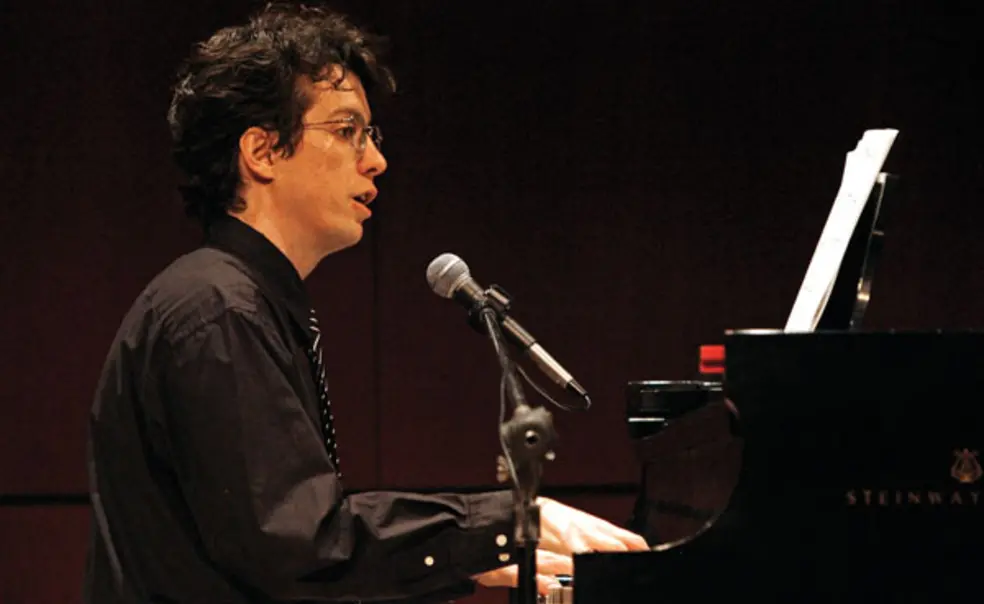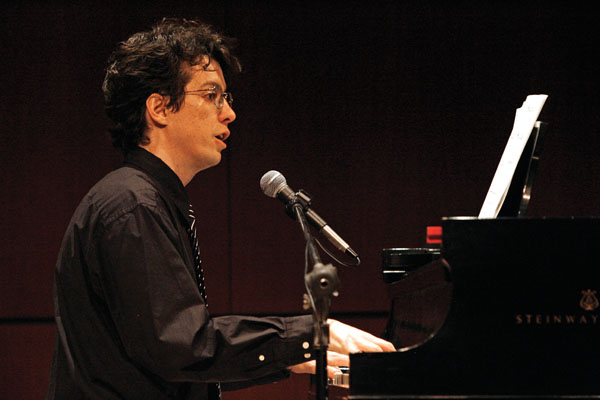Much has been made of the connection between math and music — the idea that aptitude in one portends talent in the other — but that’s not what Laurel Lerner had in mind when she organized the first physics-department concert.
Lerner, the physics department’s graduate administrator and a piano teacher, simply saw an opportunity to share an interest beyond the heady thoughts on which most students and faculty members spent their days. The first informal talent show played three hours to a full house.
There was another packed house at the 20th Annual Physics Department Concert, which took place April 26 in Taplin Auditorium and offered 10-minute performances of selections from Bach and Gershwin to rock ’n’ roll.
“It’s like a potluck,” says graduate student and trumpeter Justin Brown, who performed Leroy Anderson’s “A Trumpeter’s Lullaby.” “It’s a casual event, with music from hobbyists to serious enthusiasts.”
Like a potluck, all musical offerings are welcome. Performers must be students or employees in the physics department. Eva Zeisky, the department’s Webmaster and a pianist who now does much of the concert’s organizing, estimates that 90 percent of the music is classical. Most people perform on piano, she says, but some sing and others have played guitar, digital horn, accordion, violin, and cello. There have been less common instruments over the years: a Chinese erhu, an Indian tabla, an electric clarinet.
Brown, who plays with the University Wind Ensemble and with a local band, says music relaxes him and “allows me to use a different part of my brain.” His comment is mirrored by others, including Professor Steven Gubser ’94 *98.
Gubser, who performed during his Princeton graduate school days and played Gershwin songs on piano this year, says the recital gives amateur musicians like him the encouragement to keep practicing. And while he thinks too much is made of the math-music connection, he does admit that his music has a professional benefit: “When I’m excited about something in physics, I often like to play the piano for a few minutes. I’m not sure whether it helps me concentrate, but I enjoy it.”
Maria LoBiondo is a PAW contributor.













No responses yet